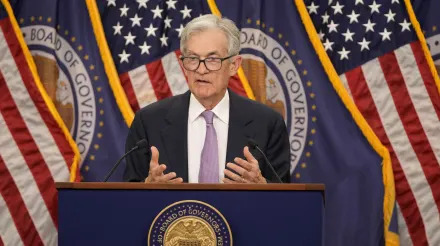October's Consumer Price Index (CPI) will serve as the latest test of whether an inflation resurgence is a risk to the US economy as the Federal Reserve debates its next interest rate decision after cutting rates by a quarter percentage point last week.
Read more: What the Fed rate cut means for bank accounts, CDs, loans, and credit cards
The report, set for release at 8:30 a.m. ET on Wednesday, is expected to show headline inflation of 2.6%, a slight uptick from September's 2.4% annual gain in prices , which marked the lowest annual headline reading since February 2021. Consumer prices are expected to have risen 0.2% over the prior month, matching the monthly increase seen in September.
On a "core" basis, which strips out the more volatile costs of food and gas, prices in October are expected to have risen 3.3% over last year for the third consecutive month. Economists expect monthly core price increases to also match the prior month's reading of 0.3%, according to Bloomberg data.
Core inflation has remained stubbornly elevated due to higher costs for shelter and services like insurance and medical care
"The October CPI report will likely support the notion that the last mile of inflation's journey back to target will be the hardest," Wells Fargo's lead economist Jay Bryson wrote in a note to clients on Friday.
Bank of America economists Stephen Juneau and Jeseo Park agreed, writing in a preview note on Monday that "inflation [is] unlikely to show much progress" and that the upcoming CPI print will likely show inflation "moving sideways after a period of substantial disinflation ."
Although inflation has been slowing, it has remained above the Federal Reserve's 2% target on an annual basis.
The outlook for inflation remains uncertain as economists warn of another potential inflation resurgence following the election of Donald Trump as the nation's next president.
Compared to the current Biden administration, Trump and his proposed policies have been viewed as potentially more inflationary due to the president-elect's campaign promises of high tariffs on imported goods, tax cuts for corporations, and curbs on immigration.
In a press conference following the latest rate cut, Federal Reserve Chair Jerome Powell said the central bank does not and will not make decisions based on expected policy changes from a new administration.
"In the near term, the election will have no effect on our policy decisions," he said at the time. "We don't know what the timing and substance of any policy changes will be. We, therefore, don't know what the effects on the economy would be, specifically whether and to what extent those policies would matter for the achievement of our goal variables: maximum employment and price stability."
As of Tuesday, markets continued to price in another 25 basis point cut in December, although the probability investors put on the central bank holding rates steady increased to roughly 35% compared to 22% one week ago, per the CME FedWatch Tool.
"Given Chair Powell's remarks last week, we believe that would keep the Fed on track to cut rates again by 25 basis points at its December meeting," BofA's Juneau and Park wrote. "That said, the shift in risks around inflation, coupled with the resilience of the US economy, has increased uncertainty over the medium-term policy outlook."
"While economic fundamentals suggest inflation should continue to moderate, policy changes pose an upside risk to the outlook," the duo added.
Alexandra Canal @allie_canal , LinkedIn,
.


